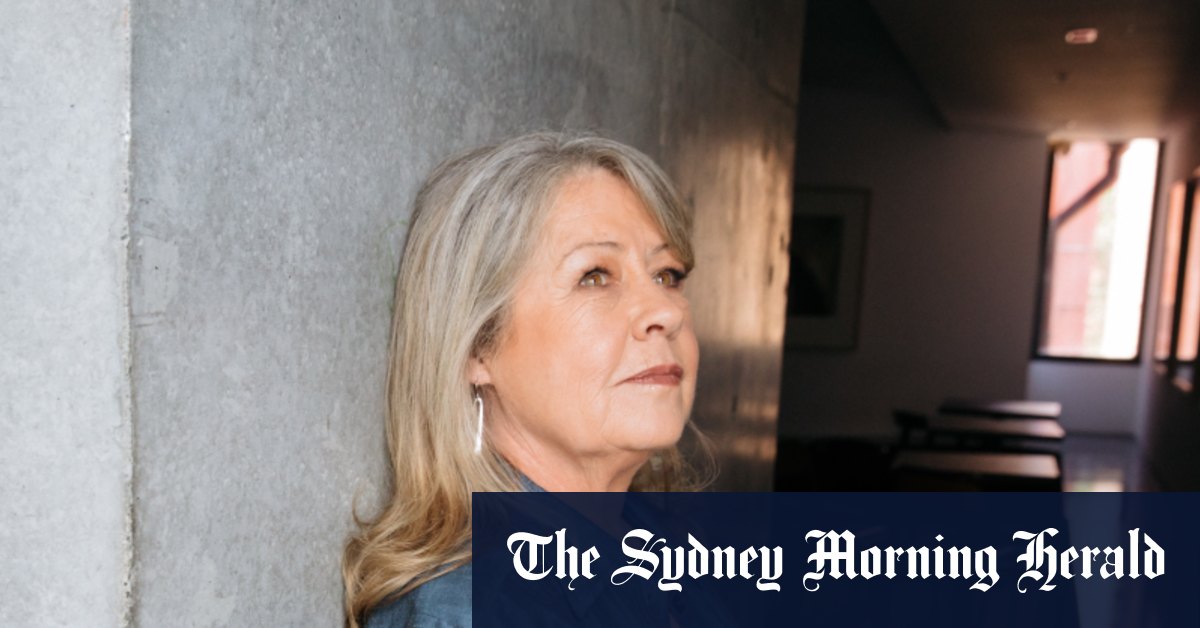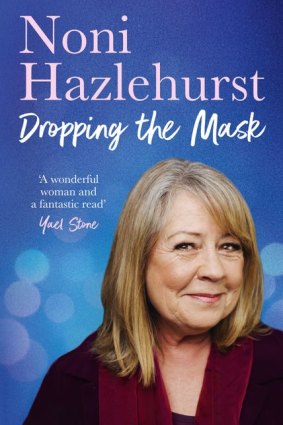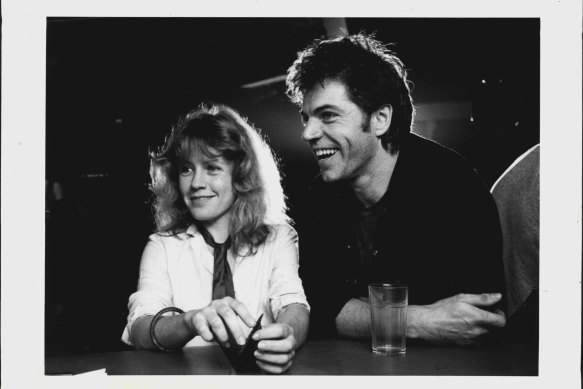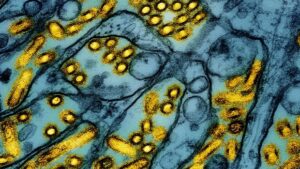

Noni Hazlehurst has written a formidable tale of an actor’s lot.
MEMOIR
Dropping the Mask
Noni Hazlehurst
HarperCollins, $34.99
Noni Hazlehurst is a special kind of actor and has written a special kind of memoir. She recently performed Daniel Keene’s Mother, burning up the stage with histrionic power as a hopeless alcoholic woman, self-maimed and self-hating, homeless and with no reliability, like one of the great tragic figures of the earth. That authority, sweeping and extraordinary, touches so much of what this actress, now in her 70s, has done.
Hazlehurst says her years on Play School taught her “to be” and not just act; her years doing Better Homes and Gardens with her then-husband, John Jarratt, were an impassioned engagement with the world of popular entertainment, even though they ended with Jarratt going off with another woman.
Hazlehurst was born in Melbourne in 1953, the daughter of middle-class ten pound Poms . Her brother went to Melbourne Grammar and eventually studied Classics at Oxford. It became rapidly clear that Noni needed to transfer to St Leonard’s (then a girls’ school) and her mild, churchgoing parents seem not to have blinked at the expense.
She was mad for drama and her teacher was smart enough to get her to choose the school play: “The Merchant of Venice,” said Noni. “Ah, Portia,” said the teacher. “No,” the exultant actor declared, “Shylock.” And so she played that tragic villain with her own concocted accent.
She studied drama at Flinders University, where she had the advantage of being taught by the great Wal Cherry. She knew nothing of what was taking place at the Pram Factory with the Australian Performing Group, but at Flinders she was taught by Tim Robertson, one of its veterans, who praised one of the students who had written “bullshit” when asked to define drama because no definition would do.

Noni Hazlehurst and Colin Friels in the 1982 film Monkey Grip.
She ended up part of the cast of the period romp The Sullivans, and she famously played Nora in the film of Helen Garner’s Monkey Grip. She enjoyed a stint in Britain doing Robyn Archer’s Cut and Thrust and would have assumed a career there, but when the Bristol Old Vic wanted her to do The Doll’s House she failed to be moved by the play.
Hazlehurst is tough as she is vibrantly alive to the memory of her feelings. There’s talk of her chairing the Australia Council and filling in for Margaret Throsby on ABC Radio. There is plenty of hesitation and an extraordinary range of quotation: Jeanne Moreau on acting as the most intimate exploration of the meaning of feeling; Eckhart Tolle saying the soul is something that can’t be mislaid. This is a terrifically energising book, full of sweep and compassion and the delineation of doubt.



